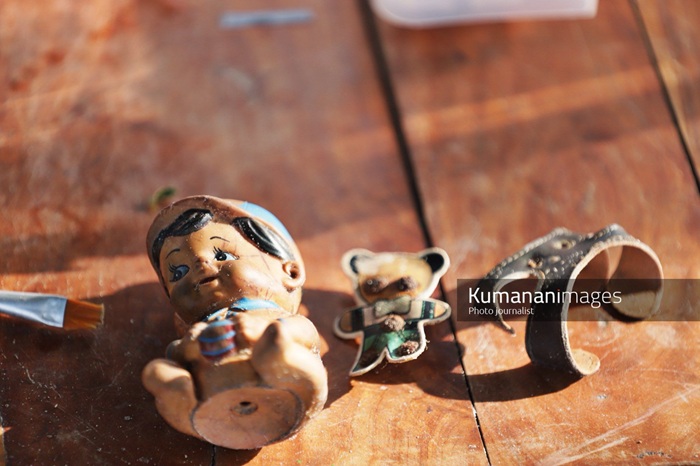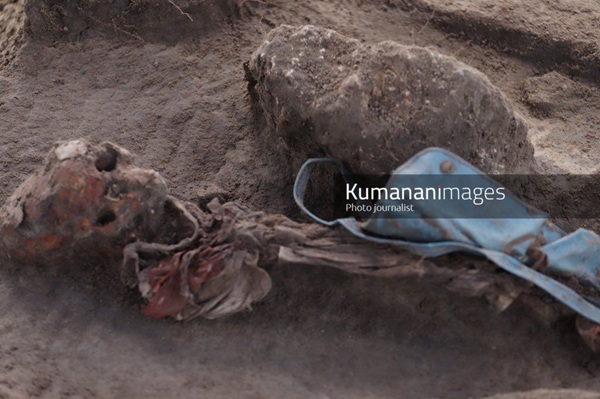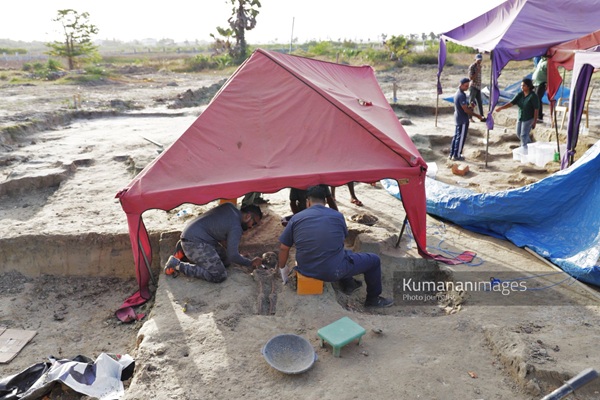
By Arun Arokianathan
If you’ve ever been to Sri Lanka, you’ve likely heard someone talk about how beautiful it is. The beaches. The green hills. The lagoons at sunset. We all — Tamil, Sinhalese, Muslim, Burgher — take pride in this island.
But beauty can hide what we don’t want to see.
Sometimes, beneath the earth, there are stories. Stories that were never meant to be found. Stories that speak of violence, silence, and denial.
And sometimes, bones.
A Graveyard in Jaffna
Currently, in July 2025, workers and forensic teams are excavating again at a site called Chemmani, located near the Siththupaththi Hindu Cemetery in Jaffna.
So far, 44 human skeletons have been unearthed. Some of them are children.
Among the remains, they’ve found a blue schoolbag, a toy, slippers, and a child’s dress. These aren’t just bones. These are lives that once were. Someone’s daughter. Someone’s brother. Maybe someone your age.
Does it shake you? It should.
Professor Raj Somadeva is supervising the excavation at the request of the Jaffna Magistrate Court. Forensic doctors, archaeologists, and legal observers are present daily. Families of the disappeared are there too — watching, waiting, and hoping for answers.
Some of these families have been waiting for nearly 30 years.

A Story I’ve Followed for Decades
I worked as a journalist in Sri Lanka for over 20 years until I left the country in early 2023. I’ve covered the war, the peace, the protests, and the silences in between.
And even after moving out of Sri Lanka, I haven’t stopped watching. I haven’t stopped writing — especially when it comes to the stories many would rather forget.
Chemmani is one of those stories.
In 1998, a soldier named Somaratne Rajapakse, on trial for the brutal murder of Tamil schoolgirl Krishanthi Kumaraswamy, testified that hundreds of civilians were executed and buried in secret graves in Chemmani during the war.
His claim led to a state-sanctioned excavation in 1999, where 15 bodies were recovered. Two were identified as people who had disappeared in military custody.
The signs of execution were clear: tied hands, blindfolds, shallow graves.
But justice didn’t follow. The case faded. No one was prosecuted. The rest of the truth was left buried — until now.
What’s Happening Now in 2025
In February 2025, construction work near the Chemmani Hindu cemetery led to the discovery of additional skeletal remains. Court-ordered excavations commenced in May. Investigators believe more remains may be near the A9 highway.
The Judicial Medical Officer has custody of the skeletons. Each one will be studied for identification.
And for the first time in years, this isn’t happening in isolation. Families of the disappeared, lawyers, university students, and human rights observers are all participating and closely watching.
Their presence matters. It sends a message: the truth may be buried but not forgotten.
Mass Graves and Our Reactions
When mass graves are found in places like Bosnia or Ukraine, the world responds with outrage. Flags are lowered. Memorials are held. The global media pays attention.
Why is it, then, that when Sri Lanka uncovers its own mass graves, the response is muted?
Where is the outrage for Tamil children’s bones pulled from Sri Lankan soil?
Where is the national grief?

Justice Is Not a Foreign Concept
The United Nations, rights groups, and independent experts have long called for justice and accountability in Sri Lanka.
As Kofi Annan, former UN Secretary-General, once said:
“Impunity must not be allowed to stand. Justice must be done — not only to punish the guilty but to ensure that such crimes are not repeated.”
Those words still ring true today. And they apply not just to the global stage but to our own communities, our own country.
A Broader Pattern of Impunity
The Chemmani mass grave is not an isolated case. It is part of a long continuum of unaddressed atrocities:
The anti-Tamil pogrom of 1983, known as Black July, saw thousands killed and displaced.
Enforced disappearances of Tamil youth, particularly in the North and East, escalated throughout the civil war.
The final phase of the war in 2009 is estimated to have killed upwards of 40,000 civilians, according to UN reports. (Sources: UN OHCHR 2015 Report, International Crisis Group, Human Rights Watch)
To date, there has been no meaningful domestic accountability for these crimes. International efforts to push for hybrid courts or independent investigations have been resisted or diluted by successive governments. (Source: OHCHR reports, statements from former UN High Commissioners )
Ask Yourself
What kind of nation do we want?
Can we claim to be proud Sri Lankans — while ignoring these truths beneath our soil?
Can we call ourselves peaceful — while justice is denied to grieving mothers and silenced families?
If you’re Tamil, you’ve lived this silence. If you’re not, you still share the responsibility — because this is part of your country’s story, too.
And let’s be honest — who will invest in a country that turns away from justice?
Will the wealthy Tamil diaspora, who left behind their homes and families, trust a nation that still denies them the truth? Will any right-thinking person, whether investor or humanitarian, feel safe putting their time, money, or hope into a place that refuses to account for the bones beneath its feet?
Accountability is not only moral. It’s practical. It builds trust. It brings healing. It invites return.
Chemmani Is More Than a Mass Grave
For me, Chemmani is not just another news story. It is a wound that refuses to close. One I’ve followed for decades — as a journalist, as a Tamil, and as a Sri Lankan who still believes in truth.
I’ve spoken to families who search for their sons and daughters with only a name and a memory.
I’ve seen mothers carry black-and-white photos worn thin by time and tears.
And now, I see those same families standing at Chemmani again as bones come back into the light.
This is not just history.
This is now.
A Final Word — For All of Us
Sri Lanka declared bankruptcy in 2022. But long before the money ran out, justice did.
You can’t build a future on denial.
You can’t bury the truth and expect peace to bloom on top of it.
Sri Lanka is a land of beauty. But it is also a land where truth has been buried too many times. The question today is whether that beauty can survive without truth — without justice.
If we truly want a better Sri Lanka — one where every community feels safe, equal, and heard — it must begin with facing what lies beneath.
Chemmani is a test. Of our humanity. Of our memory. Of our will to heal.
Let’s not fail it again.
Let this be the moment where Sri Lanka listens — not just with its ears, but with its soul.
As a non-native English writer, I used tools like ChatGPT and Claude AI to help refine my ideas and organise my thoughts into clear, polished writing. I also used Perplexity AI for in-depth research and fact-checking- Arun Arokianathan, Asia Journalism Fellow and Chevening SAJP Fellow.
Images- Kumanan (Photo Journalist)
